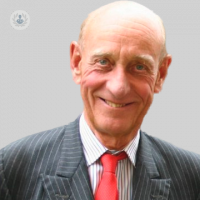How is someone assessed for liver transplant surgery?
Autore:Current survival figures in adults for a liver transplant are near 100% at one year with around 70% five and ten-year survivals. There are several long-term surviving liver transplant patients in the UK who are aged between 30 to 40 years, and who are in good health.
With the number of donor organs increasing as it has over the past year, it is likely that more transplants will be carried out in the UK and that the duration on the waiting list after acceptance will reduce. It is also possible that the criteria for suitability will be extended as may the types of disease which can be treated by a transplant.

Professor Roger Williams, CBE, Director of the Institute of Hepatology, London and Honorary Professor of Hepatology, King’s College London explains how a patient is assessed in order to have liver transplant surgery.
What is the process of assessment for a liver transplant with you?
Two main questions will be asked initially, namely, have all other forms of therapy been tried for the patient being considered and whether the chances of surviving 12 months without a transplant are less than 50%. In other words, the patient’s prognosis is poor and there is no other possibility remaining for that patient apart from a liver transplant.
What are you looking for during the assessment?
In the clinical assessment of the patient for the transplant procedure, attention will be directed to the presence of significant co-morbidity. In this connection, major heart disease that is not amenable to corrective measures (e.g. stenting) or chronic obstructive airways disease with severe limitation of respiratory capacity, will rule out the possibility of a liver transplant, as will severe kidney disease, which is known to greatly reduce the chances of a successful procedure.
If the kidney impairment is directly or indirectly related to the liver disease and with a chance of it being improved by the transplant, with the subsequent normal liver function, then this would be taken into consideration.
Increasingly the patient’s general condition and muscle strength are considered in the assessment with the determination of a so-called Frailty Index. In instances where this is low and where it is considered improvement could be obtained by intensive feeding over a period of a few months or by an exercise programme, then further assessment will be deferred until that has happened.
A psychiatric assessment will be particularly important in patients with alcohol-related liver disease or liver disease related to addictive drugs to ensure that the risk of relapse following the liver transplant are low.
Whereas in the past, active hepatitis C infection was considered a contra-indication, now with the availability of the new directly acting agents this is no longer so. These drugs can be given following the transplant to cure any infection that has been transmitted. The efficacy of the new drugs in clearing the virus has allowed the use of hepatitis C positive donor organs.
Primary hepatocellular and other liver tumours
The experience here is that only with a relatively small volume of tumour (one major lesion of 5cm diameter or 3 less than 3cm diameter) are the chances of tumour recurrence following a transplant reasonably low. Detailed CT and MRI imaging will be carried out not only to assess the size of intrahepatic tumours but also to exclude metastases of the tumour elsewhere.
Are there any other tests carried out?
Finally, technical aspects relating to the transplant that will be assessed on the basis of the clinical findings and results of the investigations including radiological and functional imaging. In particular, the presence a portal vein thrombosis, which is common in patients with cirrhosis, is a relatively strong contra-indication but will only rule it out if the thrombosis extends backwards into the superior mesenteric vein and when the thrombosis is related to tumour infiltration.
What happens if I am suitable?
The final selection for liver transplantation occurs at the implant centre that the patient is referred to. This may require several attendances as an outpatient and meetings with the transplant team as well as the transplant coordinator. The findings for that particular patient are finally discussed at a multi-disciplinary meeting before the patient is placed on the waiting list for it.
What happens if I am not suitable for liver transplant surgery?
If at any stage during the assessment the patient is considered unsuited for a transplant they will be referred back the original physicians and hospital along with full details of the tests on the same day. The specialists will make suggestions as to other possible treatments that could be tried.
Do not hesitate to make an appointment to see Professor Williams CBE if you would like to discuss your liver transplant options.


